Stalin's hometown in Georgia celebrated his 143rd birth anniversary
Stalin’s Birthday celebrated in Gori
Every year, on December 21, the day of Joseph Stalin’s birthday, several dozen people gather in his hometown to celebrate.
This year was no exception. However, there was still something different about the occasion – every year less and less people attend the event and it becomes less pompous.
Stalin’s Birthday
It is raining in the city and the air temperature is six degrees. Pedestrians try to warm themselves by walking fast.
A male voice is heard from the yard of the Stalin House-Museum. A man in his 60s holds a megaphone, stands in front of a memorial house, greets those around him and congratulates Stalin on his 143rd birthday.
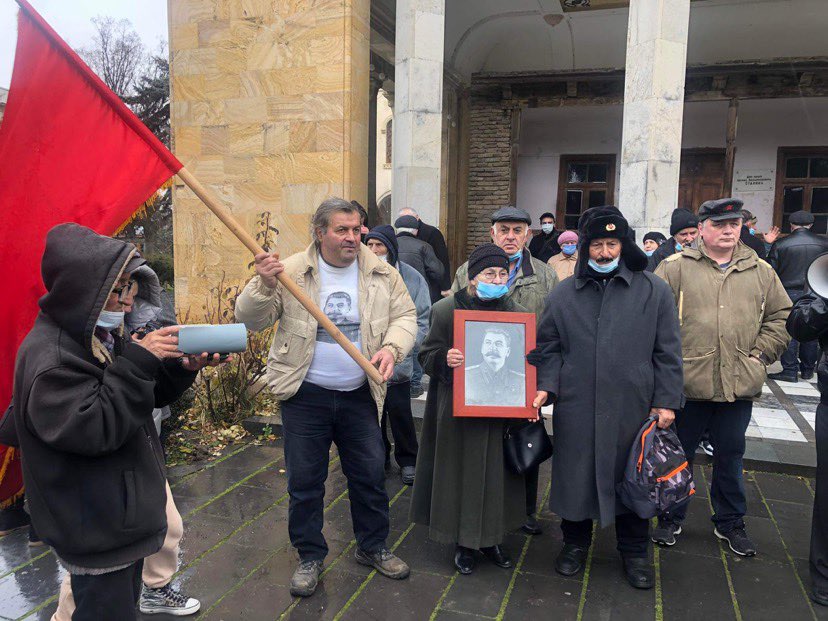
“Hello, friends, and congratulations to everyone on Stalin’s birthday. The birthday of the man who showed the whole world the way to salvation. There was fascism and he defeated it“, said Temur Pipia, chairman of the United Communist Party, who occasionally pauses to allow time for applause.
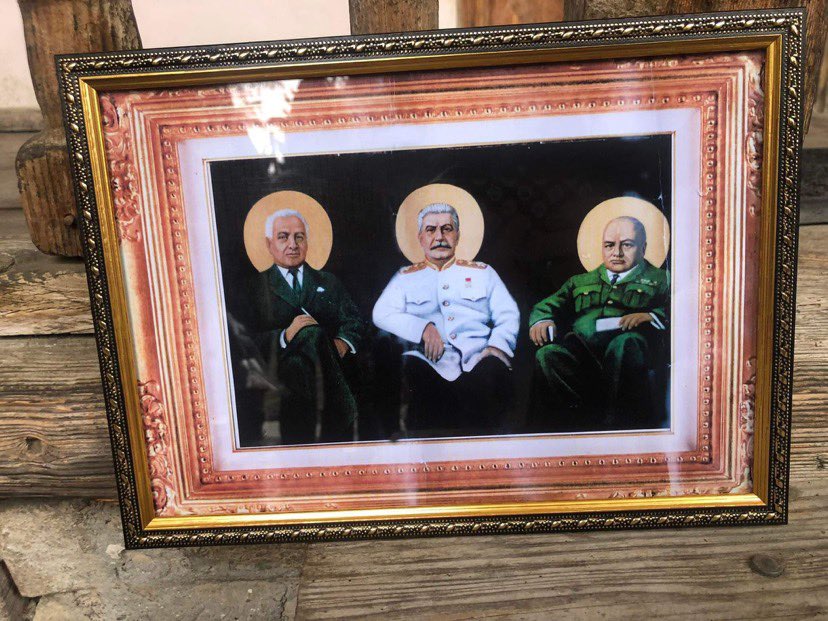
On December 21, in Gori, Stalin’s hometown, about 50 people gathered to celebrate his birthday. Most of them are aged. He looks for something in one of his pockets, takes out his glasses, fixes them and starts reading the “Communist” newspaper.
“I came from Kakheti, this day is important not only for me, but for the whole world. Everything is written correctly in this newspaper. Stalin created paradise on earth. This man wiped out unemployment, the unemployed no longer existed in the Soviet Union, what could have been greater than that. Christ did not achieve as much as Stalin did”, said Merab Zurabashvili, 76.
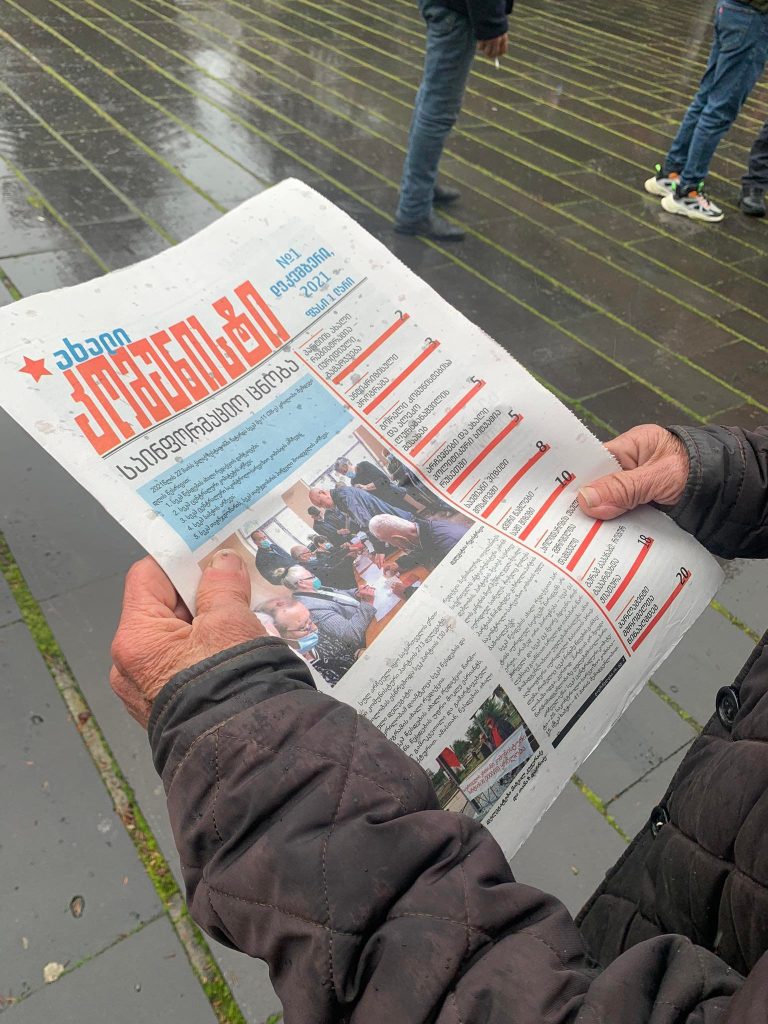
He is not the only one who considers Stalin a saint. Some people kiss the icon of Stalin brought to the meeting.
“The authorities changed and some people wanted to copy Stalin, but to no avail. Not only the elders, but also many young people love Stalin, they may not dare to speak now, but the time will come when these young people will return what others took from our generation”, Tamar Karkishvili continues her speech this time.
She is 62 years old and as she says, she does not miss any event dedicated to the immortality of Stalin. A man standing next to her is waving a red flag.
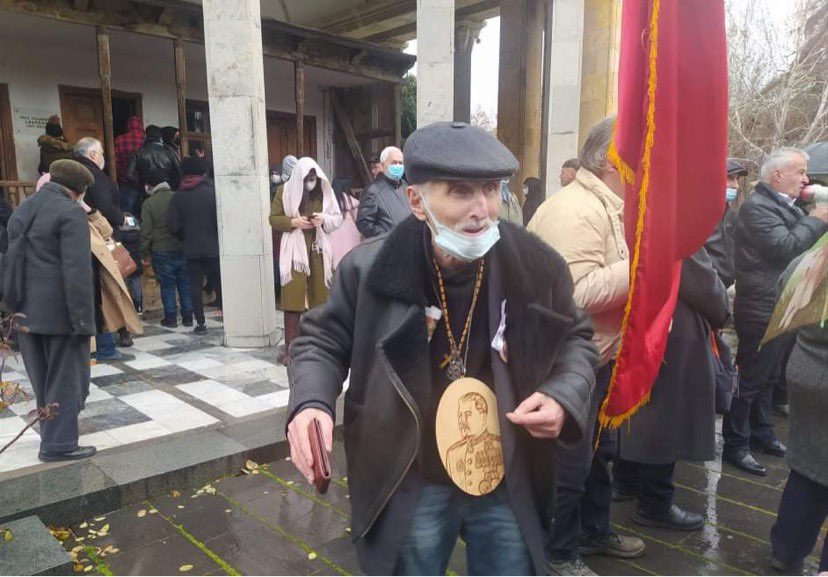
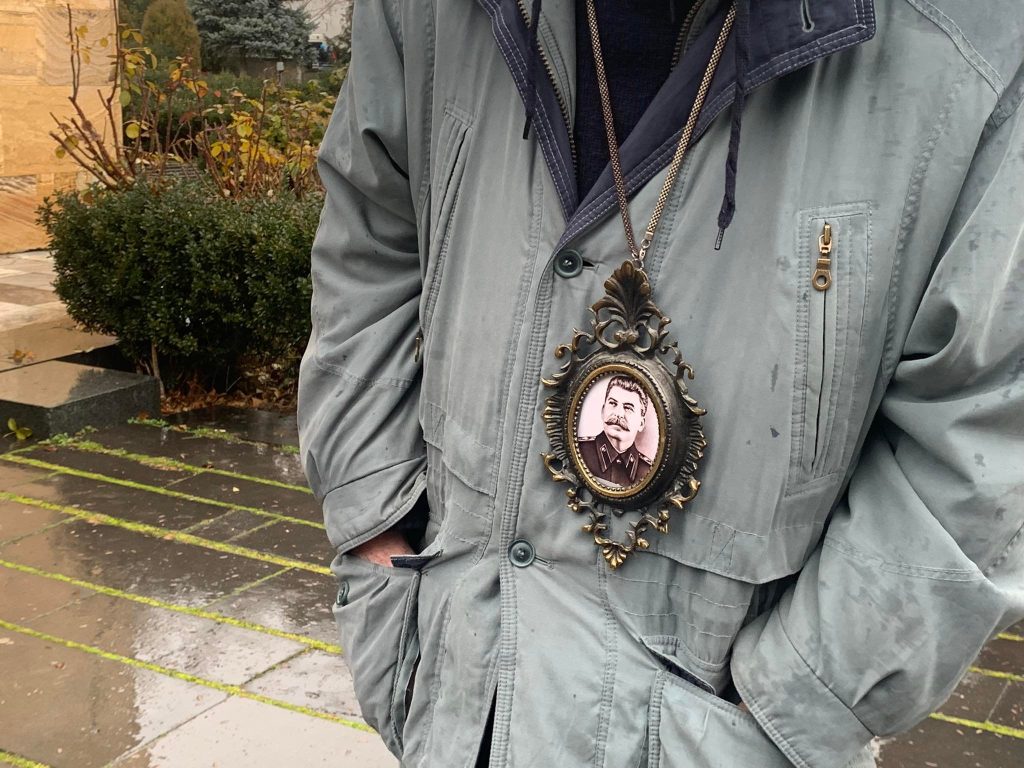
At the end of her speech, a short, thin man stands in the middle of the crowd, begins to play the fanduri and tunes first in a low voice, then says with a sneer – “Oh, how I want all my poems to be written about Stalin”.
Stalin – the provider
Near the Stalin House-Museum, a middle-aged woman opened a souvenir counter outside.
Most of these souvenirs are related to Stalin. Lighters, cups, miniature monuments decorated with photos of Stalin, and other symbols of the Soviet Union.
A woman walks to the place where tourist buses stop, but the bus did not show up that day.
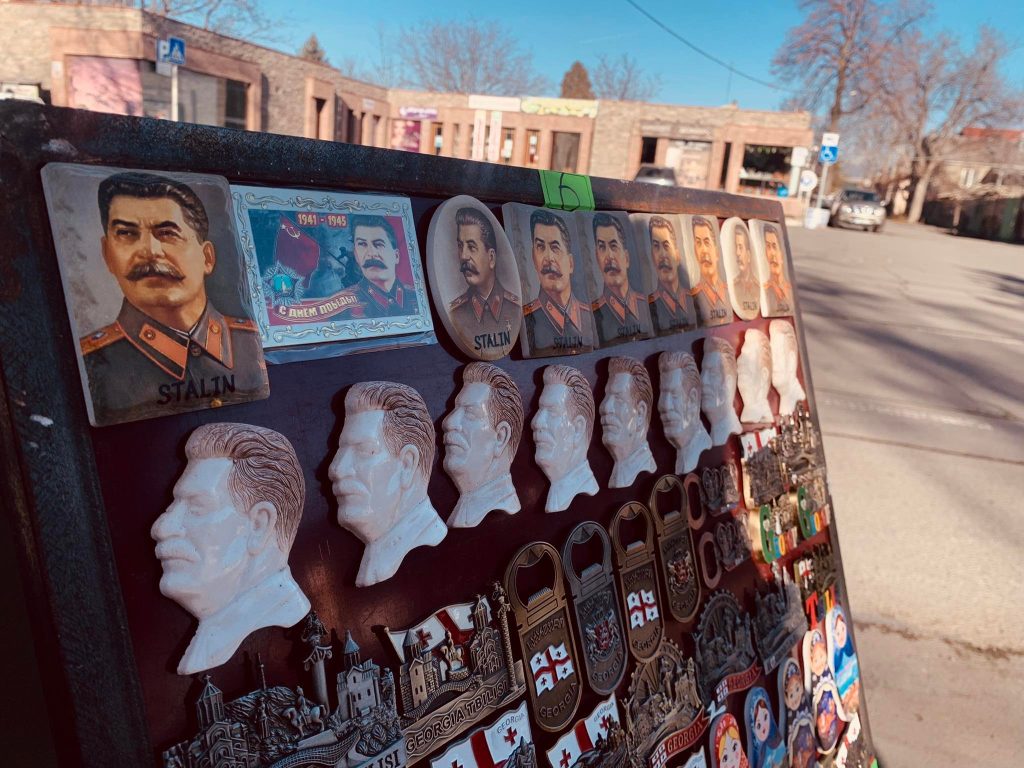
“I could not sell anything today. Such days have become more frequent. But before, tourists used to come on Stalin’s birthday”, she said.
Greta says she has been “living with Stalin” for four years.
During this time, she learned to make things – for example, making magnetic photographs with her own hands. Greta says the pandemic has hit her business hard:
“Many tourists used to come, everyone wanted to see Stalin’s hometown. And my goods were selling well”.
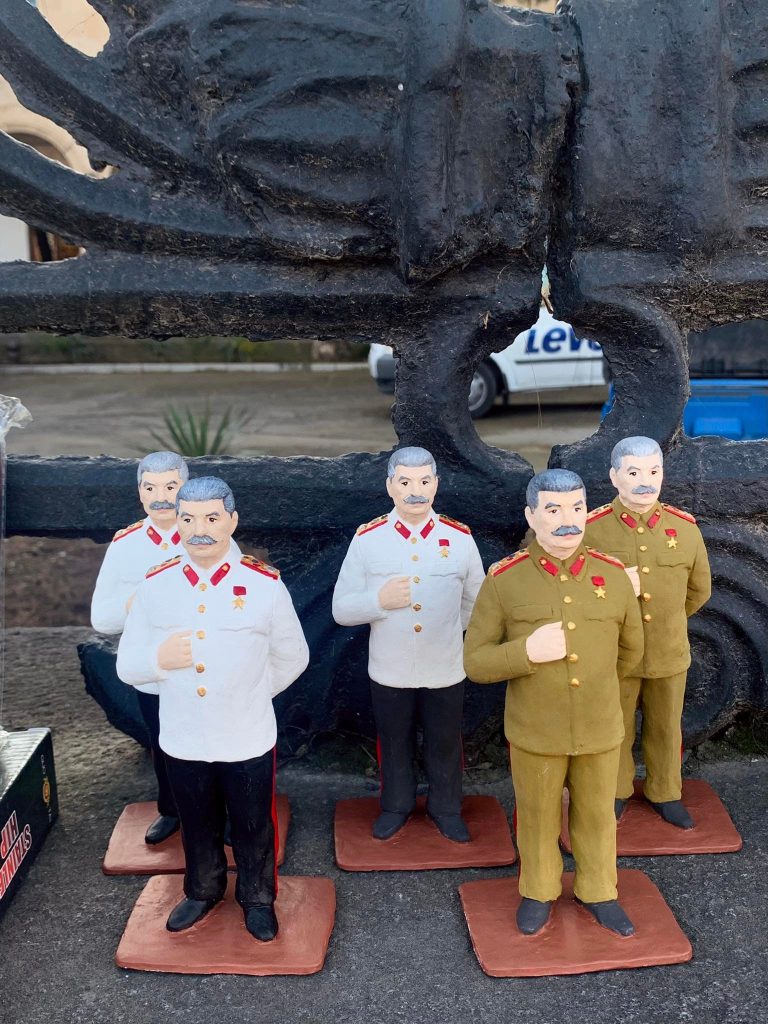
The cost of Greta souvenirs starts from three GEL and reaches up to 35 GEL.
“Before, when a lot of tourists came, I used to help other people by coming here. They used to bring various things from home, leave them and sell them. Some wanted to sell Soviet medals, some – old photos of Stalin, some – coupon notes. Even now, one woman has left medals”, Greta tells me, pointing to the medals attached to the cardboard. Their average price is 15-20 GEL.
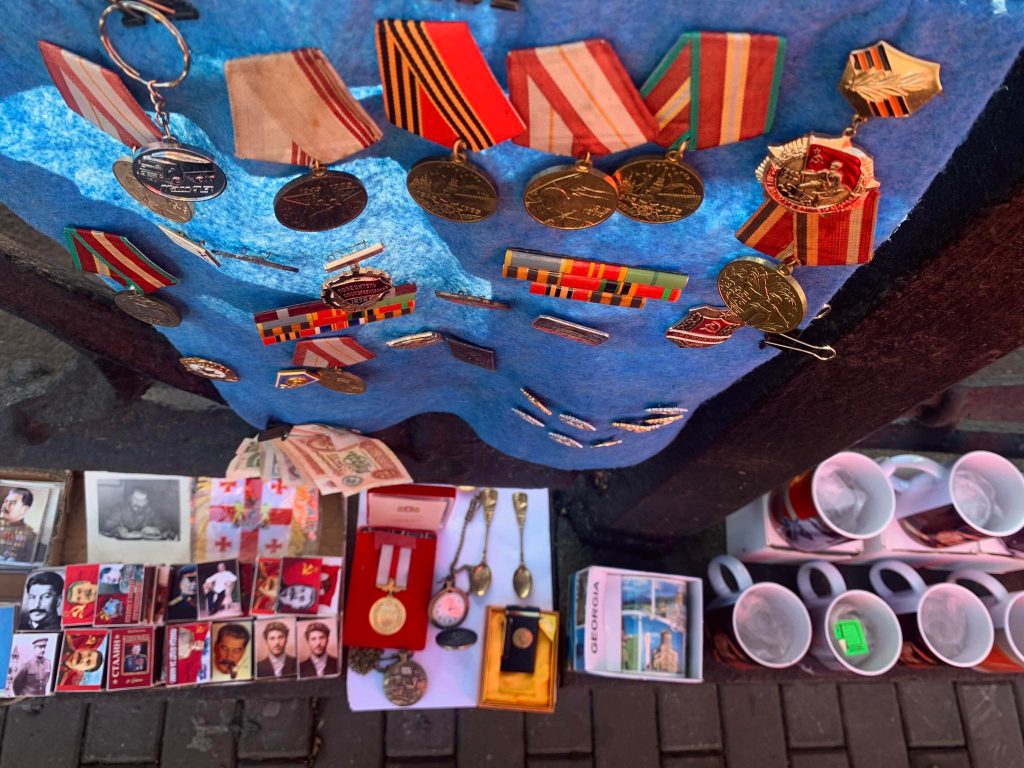
We ask Greta what she thinks of Stalin, but she avoids direct response. She told us that Stalin is still popular in many families in Gori:
“I stand here and see many things better. A tourist entering a house-museum does not only benefit the museum. From there, tourists go to a restaurant or buy Georgian wine and churchkheli in a shop. Even these objects are addictive. Criticizing the way one makes money is strange”.
After Stalin’s death, the house-museum opened in 1957, in the city center. The complex includes the memorial house where Stalin was born; the carriage in which Stalin traveled to Tehran, Yalta and Potsdam and the exhibition hall, where a separate room has been dedicated to the period of repression since 2010.
In front of the building there is a statue of Stalin made by sculptor Silovan Kakabadze.
Viewing all this, together with the guide, costs 15 GEL. As we are told here, there were days before the Coronavirus pandemic when the museum was visited by about 300 people.
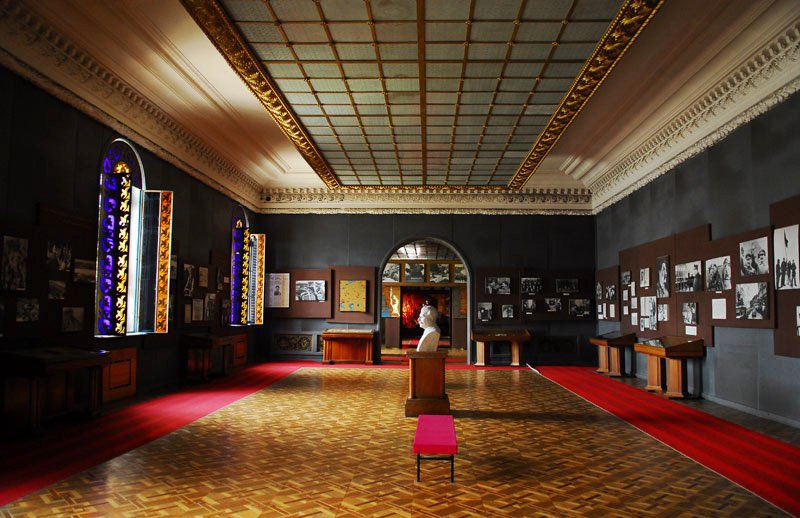
A souvenir shop, several restaurants and a fast food restaurant have opened near the house-museum.
The door to the souvenir shop is open. In the glazed room, busts of Stalin are exhibited along with Georgian wines, Svan hats, Pshavri socks. The shop owner also complains about the lack of tourists and does not only blame the pandemic:
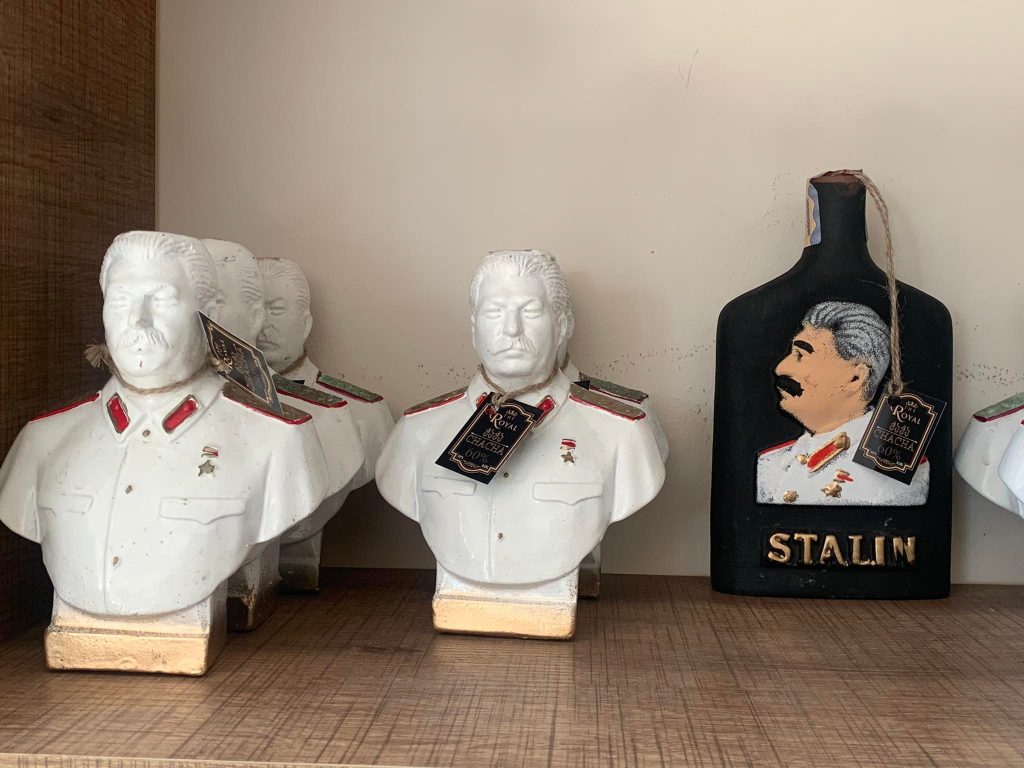
“This field is allowed to flow on its own. It is not planned in advance how we want to appear in the eyes of tourists. What we want to be our niche. Tourism development is not just about opening tourist facilities and resuming flights. Everything needs to be popularized. We remain in Stalin’s homeland, the world knows Stalin, otherwise if his popularization depended on us, it would not be the same. The state should think about replacing Stalin”.
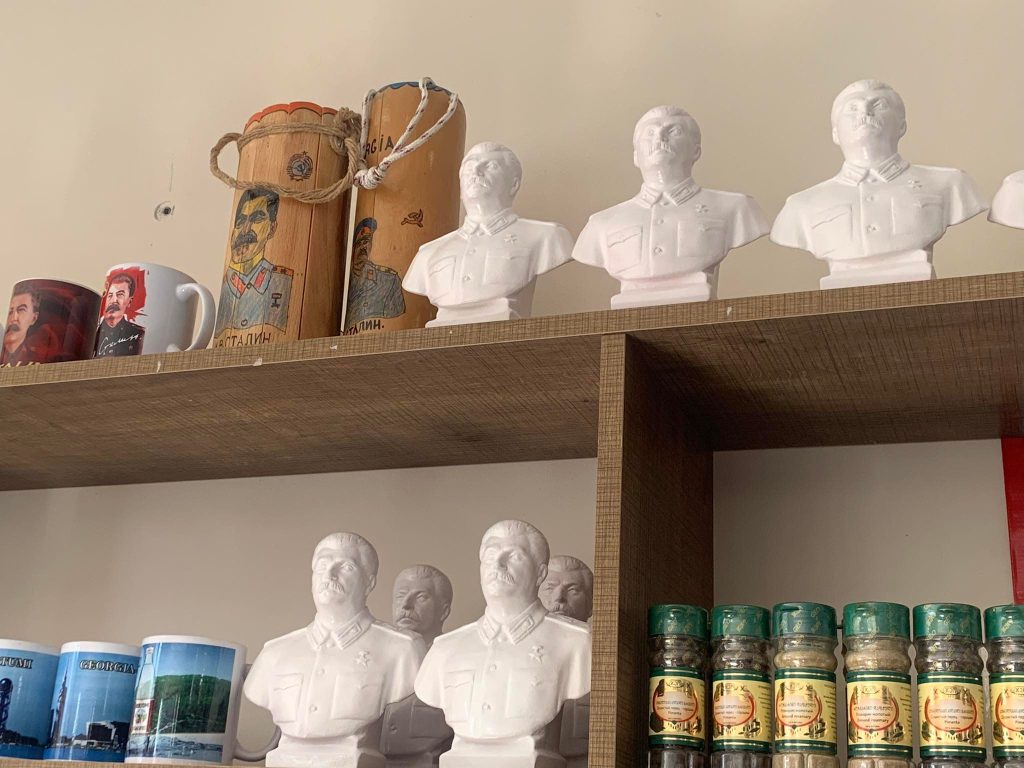
However, when we talk to him, we also learn that the number of tourists who do not enter the Stalin House-Museum in protest and do not buy souvenirs with the image of Stalin is gradually increasing. These are mostly Poles, Estonians, Lithuanians and Latvians.
“Generations change. Children are born, they grow up with other interests, and Stalin is no longer interesting or attractive to them. It depends on the country in which you were born and raised, but Stalin’s popularity will not last forever”.
Stalin – the tyrant
“If we really want to tell the world about Stalin, then we have to start collecting live stories and introducing them to tourists who are related to repressed people. In every district of Gori live the descendants of people who lost everything during the Stalinist repressions – family members, house, valuables, favorite things, honor and peace”, said Teona Fankvelashvili.
She is one of those who started an anti-Stalinist movement in Gori together with her comrades. Five young women formed the initiative group “Maro” six years ago and voiced the idea of changing the name of Stalin Street.
“We said that Stalin Street should be named after the national hero, Maro Makashvili. The name of our group also came from here. Unfortunately, our idea was never supported by the government at either the local or central level. However, our request was completely legal”.
Theona refers to a law called the Freedom Charter, which was passed by the Georgian Parliament in 2011. We read in the charter:
“The purpose of this law is […] to take preventive measures against the foundations of communist totalitarian and fascist ideologies, communist totalitarian and fascist symbols, cult buildings, monuments, monuments, bas-reliefs, inscriptions, streets, squares, villages, Eliminate the names of the towns, as well as ban the bearers of communist totalitarian and fascist ideologies and other means of propaganda”.
Despite the existence of the “Freedom Charter”, the central street in Gori is still named after Stalin and there are 3 monuments to the leader in the city.
“They also wanted to return that fourth, big monument. The Stalinists had the initiative to set up the Gori City Council, but my comrades and I met with the MPs, the party’s central offices one by one, and did everything we could to prevent this from happening. However, do not think that the local government rejected the Stalinists because of the principles. No, they just said that the area where the monument was erected was owned by the Ministry of Culture”.
The monument taken from the central square of Gori in 2009 is currently kept in one of the repositories outside the city.
The anti-Stalinist movement is slowly but surely gaining strength. Years ago, the issue of renaming Stalin Street was not even a topic of discussion in Gori. However, separate groups are now taking the initiative to name the street after Freedom Square or the heroes of the August war.
“Re-evaluating Stalin’s actions and the history of the Soviet Union needs a political context and environment. The government that came after the Rose Revolution clearly had the will to do so, which soon manifested itself in the dismantling of the monument. However, then the government changed and the processes in this direction slowed down”, said Nika Tsikaridze, one of the Gori activists who attends almost every event in the city to analyze Stalin’s actions.
According to him, the fact that Stalin Street in Gori has not been renamed so far indicates that this decision will be unpopular. That is, it is unacceptable for the majority of Gori population to rename this street.
“Reassessing Stalin in society requires a complex approach to school education, which cannot be achieved through the current education system and without the will of the political leadership. If we want to be a modern country, then we must call the past by its name, evaluate it correctly and not refuse to distance ourselves from it”.


















